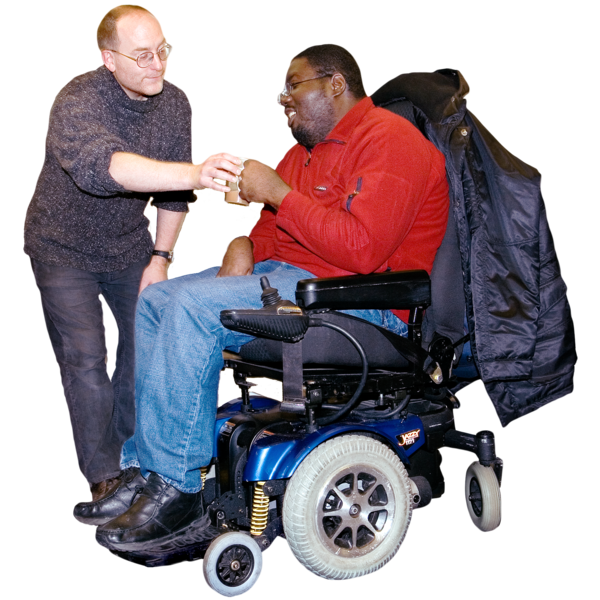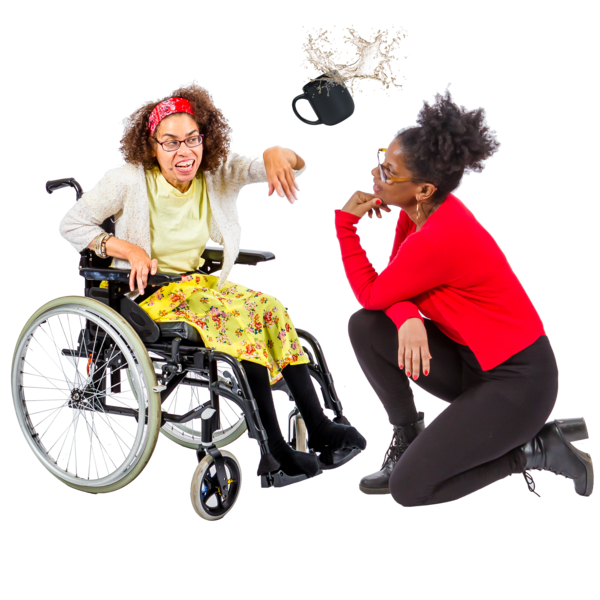The Census was published by the Health and
Social Care
 Social care means the services that give care and support to people who need it.
Information Centre (HSCIC) and commissioned in the wake of physical and psychological abuse suffered by people with a
learning disability
Social care means the services that give care and support to people who need it.
Information Centre (HSCIC) and commissioned in the wake of physical and psychological abuse suffered by people with a
learning disability
 A learning disability is to do with the way someone's brain works. It makes it harder for someone to learn, understand or do things.
at Winterbourne View Hospital exposed by a Panorama investigation broadcast in 2011.
A learning disability is to do with the way someone's brain works. It makes it harder for someone to learn, understand or do things.
at Winterbourne View Hospital exposed by a Panorama investigation broadcast in 2011.
New figures from the Learning Disability Census 2015 show that there are 3500 people with a learning disability in inpatient units, who are still at high risk of abusive and restrictive practices. This is inclusive of 480 patients who were unreported in the Learning Disability Census, an increase of 235 on last year.
Of the 3000 patients receiving inpatient care who were included in the Census:
- 72% had received antipsychotic medication, yet only 28.5% were recorded as having a psychotic disorder
- 1,670 had experienced one or more incidents (self-harm, accidents, physical assault, restraint or seclusion) in the 3 months prior to census
- average length of stay in an institution is 4.9 years
- 670 people are 100km or more from home, an increase of 17% on last year.
In October, NHS England published a closure programme of in-patient units and committed to developing the right support and services for people in their local communities, awarding £45m over the next three years to help with this.
This follows
the government
 The Government are the people who run the country. The Government decide how much tax people should pay and how things like the National Health Service (NHS) should work.
failure to meet their June 2014 commitment to ensure people with a learning disability were supported to return to their communities from institutions like Winterbourne View.
The Government are the people who run the country. The Government decide how much tax people should pay and how things like the National Health Service (NHS) should work.
failure to meet their June 2014 commitment to ensure people with a learning disability were supported to return to their communities from institutions like Winterbourne View.
Jan Tregelles, chief executive at Mencap, and Viv Cooper, chief executive at the
Challenging Behaviour
 Challenging behaviour can be when someone hurts themselves, hits or pinches someone else, or breaks something. Some people might behave like this because they are upset or because people do not understand them.
Foundation said:
Challenging behaviour can be when someone hurts themselves, hits or pinches someone else, or breaks something. Some people might behave like this because they are upset or because people do not understand them.
Foundation said:
“Today’s publication of the Learning Disability Census 2015 is stark reminder that since the abuse scandal of Winterbourne View, there has been little progress in moving people with a learning disability out of inpatient units. The fact that there has been a significant increase in the amount of people with a learning disability who have gone unreported is completely unacceptable. These people who have been lost in the system are at a greater risk of abuse and are not receiving the support to be able to return to their communities.
“Commissioners and providers failing to return any information on hundreds of people is another contributing factor to the minimal improvements we have seen for people with a learning disability so far.
“NHS England recently published their closure programme, which is welcomed, but until people see a change on the ground, this means little to people with a learning disability and their families. There are still too many people stuck in inpatient units, where they are at risk of abusive and restrictive practices.
“NHS England, CCG’s and the local authorities must act now to make sure the right services and support are developed as part of their Transforming Care Partnership plans, and people are moved back into their communities.”
Steve Sollars, father to Sam, who has a learning disability and spent two years at Winterbourne View until 2010, said:
“It is extremely upsetting to know that people are still experiencing what my son Sam went through. Sam was at Winterbourne View and was restrained 45 times over a 6 month period, as well as being emotionally tormented by staff there. When he returned home the son I knew was barely recognisable. We, the families, want to see the government and NHS England doing everything in their power to bring about change. After so many false starts I will only believe things are getting better when we finally see more people with learning disability and behaviour that could be described as challenging moving out of assessment
An assessment is a way of finding out what help a person needs. When you have an assessment, you might have to go to a meeting or fill in a form. and treatment units.”
-ENDS-
Notes to editors
The Learning Disability Census provides an individual record-level snapshot of inpatients with learning disabilities, autistic spectrum disorder and/or behaviour that challenges, and the services they receive, for patients who were inpatients in NHS and independent sector services at midnight on 30 September 2015.
For further information or to arrange interviews, please contact media@mencap.org.uk or 020 7696 6950.
About Mencap
There are 1.4 million people with a learning disability in the UK. Mencap works to support people with a learning disability, their families and carers by fighting to change laws, improve services and access to
education
 Education is when you learn things. When you fill in a form to get a job, education means you write where you went to school, college or university.
,
employment
Education is when you learn things. When you fill in a form to get a job, education means you write where you went to school, college or university.
,
employment
 Employment means having a job.
and
leisure
Employment means having a job.
and
leisure
 Leisure is when you have time to do things you enjoy like playing sports or going to the pub.
facilities. Mencap supports thousands of people with a learning disability to live their lives the way they want.
Leisure is when you have time to do things you enjoy like playing sports or going to the pub.
facilities. Mencap supports thousands of people with a learning disability to live their lives the way they want.
Visit www.mencap.org.uk.
For advice and information about learning disability and Mencap services in your area, contact Mencap Direct on 0808 808 1111 (9am-5pm, Monday-Friday) or email help@mencap.org.uk
About The Challenging Behaviour Foundation
The Challenging Behaviour Foundation (CBF) is an independent charity providing information, support and workshops around challenging behaviour associated with severe learning disabilities to families and professionals. The CBF leads the ‘Challenging Behaviour National
Strategy
 A strategy is a plan to show what an
organisation
A strategy is a plan to show what an
organisation
 An organisation are a group of people who work together.
, or a person, wants to do and how they are going to do it.
Group’ which seeks to influence policy and practice nationally and has developed the Challenging Behaviour
Charter
An organisation are a group of people who work together.
, or a person, wants to do and how they are going to do it.
Group’ which seeks to influence policy and practice nationally and has developed the Challenging Behaviour
Charter
 A charter is a piece of paper that says how things should be done.
.
A charter is a piece of paper that says how things should be done.
.
The Challenging Behaviour Foundation was founded in 1997 by Vivien Cooper, parent of a son with severe learning disabilities who displays behaviour described as challenging. Today the Challenging Behaviour Foundation is in regular contact with over 5000 families and professionals across the UK. There are an estimated 30,000 individuals in England with severe learning disabilities and behaviour described as challenging.
Visit www.challengingbehaviour.org.uk.
About learning disability
A learning disability is a reduced intellectual ability, which can cause problems with everyday tasks – for example shopping and cooking, or travelling to new places – which affects someone for their whole life.
People with a learning disability can take longer to learn new things and may need support to develop new skills, understand difficult information and engage with other people. The level of support someone needs is different with every individual. For example, someone with a severe learning disability might need much more support with daily tasks than someone with a mild learning disability.
Learning disability is not a mental illness or a learning difficulty, like
dyslexia
 Dyslexia is a learning difficulty. People who have dyslexia can find it hard to read, write and spell.
. Very often the term ‘learning difficulty’ is wrongly used interchangeably with ‘learning disability’.
Dyslexia is a learning difficulty. People who have dyslexia can find it hard to read, write and spell.
. Very often the term ‘learning difficulty’ is wrongly used interchangeably with ‘learning disability’.